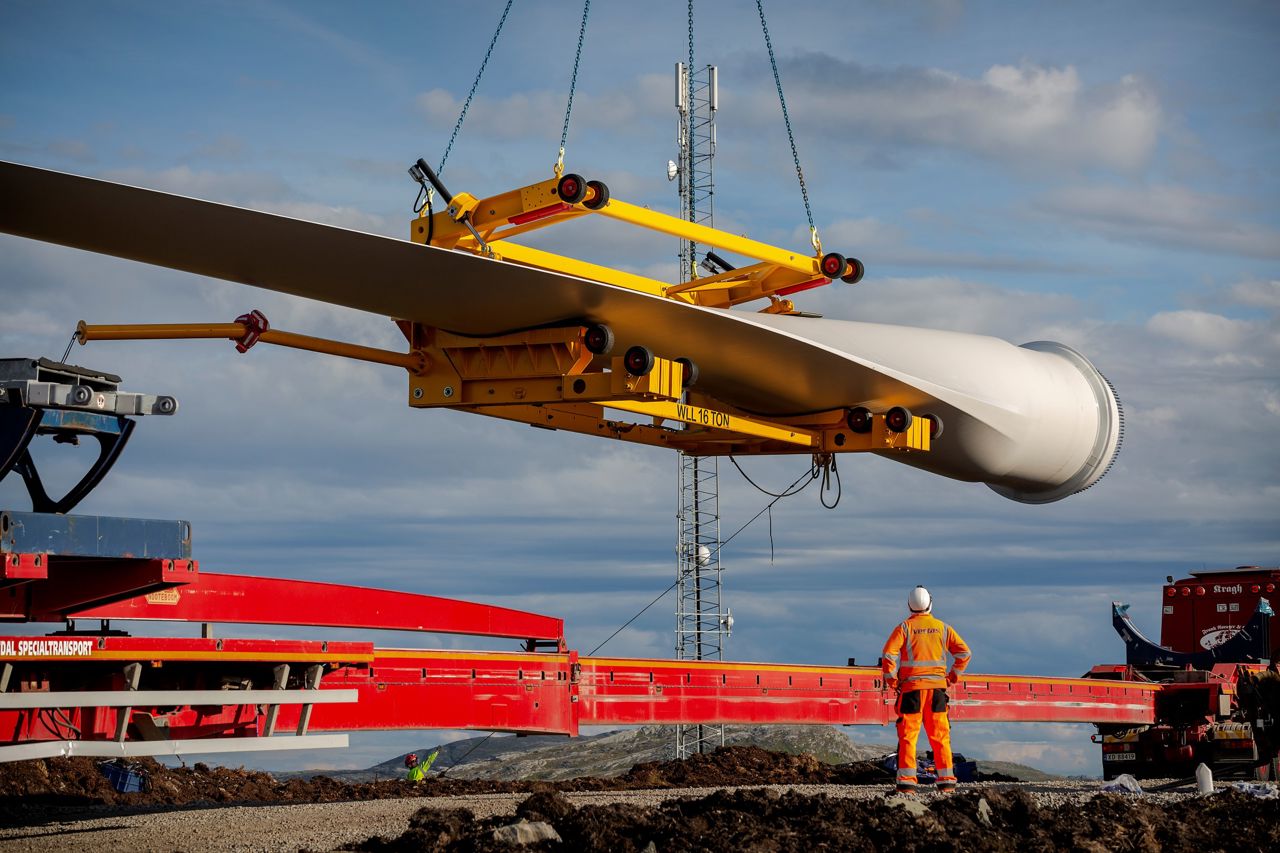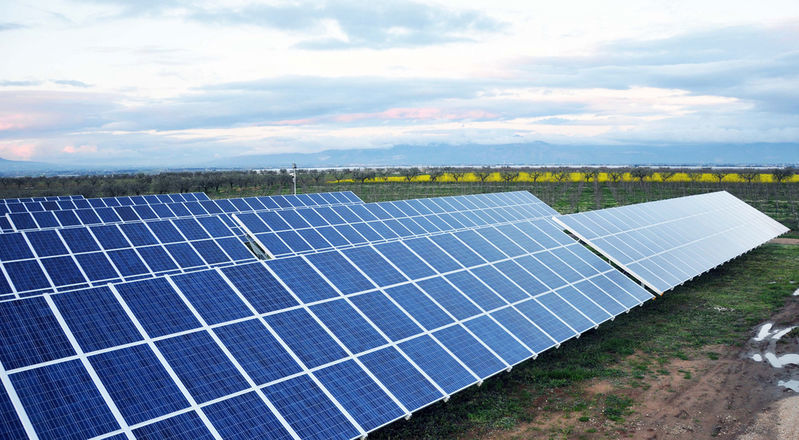
Responsible supply chain
Statkraft seeks to ensure responsible business practice by avoiding purchases that have adverse impacts on people, society and the environment. Our Supplier Code of Conduct sets out the requirements for our business partners, and we follow up our suppliers through contract obligations.
Our approach to sustainable procurement
Statkraft is committed to sustainable and responsible business practices, and this commitment extends to our suppliers. Our procurement activities are guided by the OECD Guidelines for Multinational Enterprises and the OECD Diligence Guidance for Responsible Business Conduct. We organise our procurement activities to obtain the best possible value, terms and conditions, and avoid adverse impacts to people, society, and the environment in our supply chains.
To improve sustainability at all levels in the supply chain, we believe that cooperation with our suppliers is necessary.
Our ambition is to procure from suppliers that demonstrate respect for people, society, and the environment.
Each year, Statkraft purchases from approximately 13 000 suppliers world-wide. Procurement is handled by more than 130 procurement professionals, in different purchasing streams, located in twelve countries. Their day-to-day work is supported by the Sustainable Supply Chain unit in Group Procurement.
Our Supplier Code of Conduct is part of all contracts; it prohibits unethical and illegal business practices, and requires our suppliers to respect fundamental human rights and labour rights, health and safety standards, the environment, and privacy.
Statkraft’s procurement policy requires that procurement activities be organised to “avoid adverse impacts to people, society and the environment”. The policy is supported by requirements that ensure that potential impacts are assessed in the same manner as financial and operational risks. Our standard contract models include sustainability obligations. We integrate obligations in tender documents, and potential suppliers are assessed (as part of the qualification criteria) on how they respect human and labour rights.
When we discover an adverse impact linked to our purchases, we engage in dialogue with the supplier to stop and rectify the situation. Where impacts cannot be rectified, we cooperate with the supplier to enable remediation that is proportionate to the significance and scale of the adverse impact.
Key risks
Statkraft acknowledges that we cannot handle all potential adverse impacts in our supply chain. Risks have therefore been prioritised based on severity and likelihood, and the prioritised risks are described in further detail below
Most of Statkraft’s procurement activities are directly linked to purchasing of equipment necessary to produce electricity and the construction of power plants. Specific sustainability risks in the supply chains have been identified related to hydropower equipment, wind turbines, solar panels and batteries and transport to, and work at Statkraft’s sites.
We handle risks by addressing issues in the tender phase and by including mitigation measures in contract conditions. We work to develop, implement, and track measures.
Potential risks of breach of human and labour rights in the supply chain for hydropower

Electromechanical equipment for hydropower generation is usually tailormade to the power plant production capacity. The supply chain is long and varied, and Statkraft has limited transparency into the lower tiers. Statkraft’s suppliers usually purchase material and components from sub-suppliers, that manufacture and assemble equipment at their sites.
The primary materials used in all electromechanical equipment are steel, followed by copper and aluminium. Approx. 50 per cent of components in control systems contain one or more minerals frequently referred to as a “conflict mineral”. To minimise the risk of purchasing from conflict zones the contractual obligations were revised in 2022.
In addition, there are risks of breach of labour rights such as poor working conditions and inequality at sub-supplier workshops (in rough machining and welding workshops).
Potential risks of breach of human and labour rights in the supply chain for wind power equipment

The main components in wind turbines are rotor blades, rotor hubs, nacelles, and towers. The supply chain is long and Statkraft’s suppliers buy standard and manufactured components from a variety of sub-suppliers. Glass fibre reinforced plastic (GRP) is the main component in rotor blades and constitutes a large part of the rotor and hub. Statkraft has assessed that there is a risk of both forced labour and discrimination against women related to the production of components made of GRP.
Potential risks of breach of human and labour rights in the supply chain for solar power equipment and equipment in Battery Energy Storage Systems (BESS)

The main components for solar are photovoltaic (PV) panels, with polysilicon as the key input material, and inverters. Statkraft is aware of the risk of forced labour in the solar supply chain. Statkraft strongly opposes the use of forced labour and we have implemented measures to address the risks through traceability obligations and audit rights. Future contracts will be awarded to suppliers that deliver solar module materials from factories where there is a limited risk of forced labour, who act transparently and allow insight into their supply chain.
Statkraft has run tender processes for framework agreements for solar equipment, e.g. PV panels and inverters. The due diligence findings indicate risks of human rights violations connected with some potential first tier suppliers. These findings have been discussed with Corporate Management and short- and long-term measures to address potential risks have been committed to.
Addressing the risks related to forced labour in the supply chain is complex and individual companies’ efforts are important but not enough in themselves to address the challenges. Therefore, Statkraft also works with industry associations and peers to raise awareness, increase transparency, and improve industry standards for PV panels and other solar equipment.
The main components of BESS are inverters, batteries, transformers, protection devices, cooling systems and control systems. The supply chain is long and Statkraft’s suppliers buy standard and manufactured components from a variety of sub-suppliers. BESS components are likely to contain metals and minerals that are rare and that may originate from conflict zones. Statkraft is in the process of analysing risks and establishing a process that ensures traceability in the same manner as implemented for solar components.
Other potential risks of breach of human and labour rights in our supply chains
The supply chain for business consulting and engineering work is short, and work is usually performed in countries where Statkraft is located. Statkraft considers the risk of human and labour rights breaches to be low.
Statkraft acknowledges that there are potential risks related to labour conditions in connection with transportation of goods and certain indirect materials and services. In 2022, Statkraft has reviewed contracts for cleaning services and established a new contract model for purchasing of cleaning services in Norway. Over the last few years, Statkraft has systematically worked to reduce the amount of harmful chemicals and oils used in the operation of power plants, and in 2023, we will assess risks related to chemicals used for cleaning.
Risks related to business ethics (e.g. risk of fraud and corruption) are still under pressure, and we are working to mitigate them through awareness. The procurement fraud prevention system has been re-shaped to improve the understanding of risks and we are working to improve the control function.
Supplier Code of Conduct
The basis for our supply chain management is our Supplier Code of Conduct, which covers health and safety, environment and climate, human rights, labour rights, and business ethics. Statkraft’s suppliers must meet the requirements set out in this document, which are designed to reflect our commitment to a responsible business conduct.
Companies that tender for contracts are informed about the requirements in the Supplier Code of Conduct as part of the procurement process. The Supplier Code of Conduct and contract clauses that give Statkraft the right to monitor supplier performance forms part of all contracts.
Inspections and reviews
In order to drive improvement in supplier performance, we undertake reviews and inspections of our suppliers.
Strategic supplier due diligence
To operationalise expectations and upcoming legislative requirements, Statkraft has developed a framework and methodology for supply chain due diligence, named Know Your Supplier (“KYS”). This is a practical and operative approach to assess and manage supply chain risk. The framework is developed to assess risk at key suppliers specifically. However, the output of several targeted KYS assessments will inform supply chain risk more generally. The framework includes risk assessment and management at suppliers’ own operations and their respective supply chains.
Sustainability rating for global supply chains
Statkraft has partnered with EcoVadis to measure and improve sustainability impacts. In 2022, EcoVadis has been used to assess 13 suppliers of solar equipment, Battery Energy Storage Systems (BESS) and wind towers.
Related content

Business ethics and compliance
Statkraft is driving the renewable energy shift and upholding ethical business and stakeholder relations. We face ethical challenges across varied settings and are committed to addressing them with in...
Read more

For suppliers
Statkraft partners up with suppliers that contribute to our strategic target of delivering reliable, renewable and cost competitive energy to our customers.
Read more

Governance
Our approach to sustainability is continuously evolving, along with our business strategy and international developments. The Statkraft management system includes policies and requirements which guide...
Read more